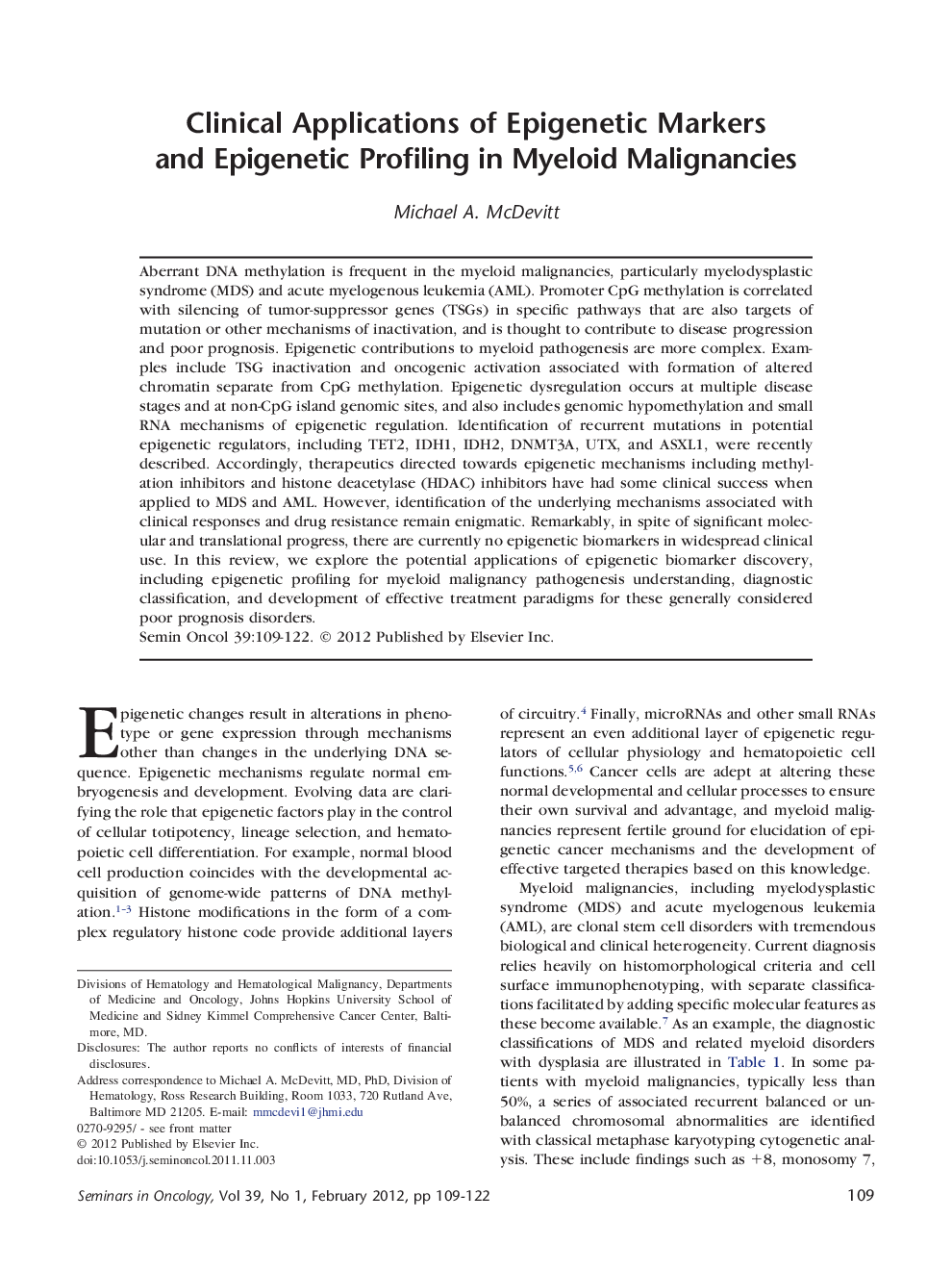| Article ID | Journal | Published Year | Pages | File Type |
|---|---|---|---|---|
| 2162316 | Seminars in Oncology | 2012 | 14 Pages |
Abstract
Aberrant DNA methylation is frequent in the myeloid malignancies, particularly myelodysplastic syndrome (MDS) and acute myelogenous leukemia (AML). Promoter CpG methylation is correlated with silencing of tumor-suppressor genes (TSGs) in specific pathways that are also targets of mutation or other mechanisms of inactivation, and is thought to contribute to disease progression and poor prognosis. Epigenetic contributions to myeloid pathogenesis are more complex. Examples include TSG inactivation and oncogenic activation associated with formation of altered chromatin separate from CpG methylation. Epigenetic dysregulation occurs at multiple disease stages and at non-CpG island genomic sites, and also includes genomic hypomethylation and small RNA mechanisms of epigenetic regulation. Identification of recurrent mutations in potential epigenetic regulators, including TET2, IDH1, IDH2, DNMT3A, UTX, and ASXL1, were recently described. Accordingly, therapeutics directed towards epigenetic mechanisms including methylation inhibitors and histone deacetylase (HDAC) inhibitors have had some clinical success when applied to MDS and AML. However, identification of the underlying mechanisms associated with clinical responses and drug resistance remain enigmatic. Remarkably, in spite of significant molecular and translational progress, there are currently no epigenetic biomarkers in widespread clinical use. In this review, we explore the potential applications of epigenetic biomarker discovery, including epigenetic profiling for myeloid malignancy pathogenesis understanding, diagnostic classification, and development of effective treatment paradigms for these generally considered poor prognosis disorders.
Related Topics
Life Sciences
Biochemistry, Genetics and Molecular Biology
Cancer Research
Authors
Michael A. McDevitt,
